2023 Hasselblad Masters Winners Show the Best in Fine Art Photography
![]()
Hasselblad has announced the winners of its prestigious Hasselblad Masters 2023 competition.
It was a huge edition of the biannual contest, with more than 85,000 photos entered. This is a 35% increase in total entries compared to the previous 2021 Hasselblad Masters competition.
Hasselblad Masters 2023 included six categories, Landscape, Architecture, Portrait, Art, Street, and Project//21, and welcomed entries from established professionals, emerging talents, and photographers under the age of 21.
Each category winner earns the title of “Hasselblad Masters” and receives a Hasselblad X2D 100C medium-format camera, two XCD Series lenses, and a EUR 5,000 cash prize, about $5,350. Each winner will also work with Hasselblad on a collaborative project and be up for inclusion in a commemorative Hasselblad Masters book. The winners were selected through public voting and decisions by a professional grand jury.
“Being a jury member for this year’s Hasselblad Masters competition has been an exciting and challenging process, as the high level of quality in submissions made selection difficult. A word that comes to mind when looking at the winning contributions is sensemaking,” explains Stefan Jensen, photographer and curator at the Hasselblad Foundation. Jensen was the Grand Jury Chair for the 2023 competition.
“All but one category featured photographs in their original definition — a subject in front of the camera. They range from documentary to staged images and collages, but what they have in common is that they are a reflection of reality. This competition’s photographers open doors for viewers to understand and make sense of their surroundings, demonstrating the strength of the photographic image in contemporary times,” Jensen continues.
Without further ado, the category winners.
Landscape
Chinese photographer Weimin Chu won the Landscape category with their series, “Tibetan Landscape from the Train Window.” The images show traditional Chinese landscapes integrated with modern development and industrialization, and Chu creates frames within frames, using the train carriage interior as part of the composition, taking viewers on a journey through time and place.
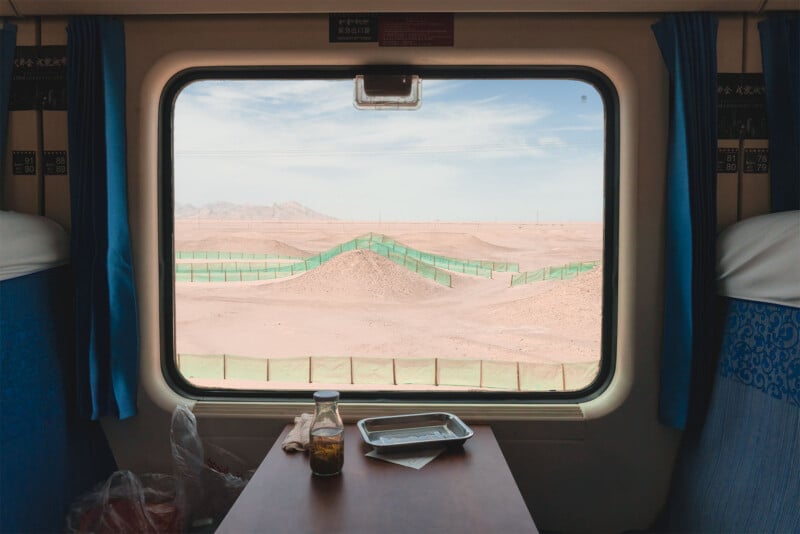
“This series of works was shot in the trains of the Qinghai-Tibet Railway and the Lalin Railway. Through the train windows, the traditional natural landscapes and the social landscape photography of the times are combine,” says the photographer. “On the way to Tibet by train, I was inspired by Chinese photographer Wang Fuchun’s ‘Chinese on the Train’ and American photographer Lee Friedlander’s ‘America by Car,’ and I came up with the idea of using trains, a large-scale means of transportation in China. ”
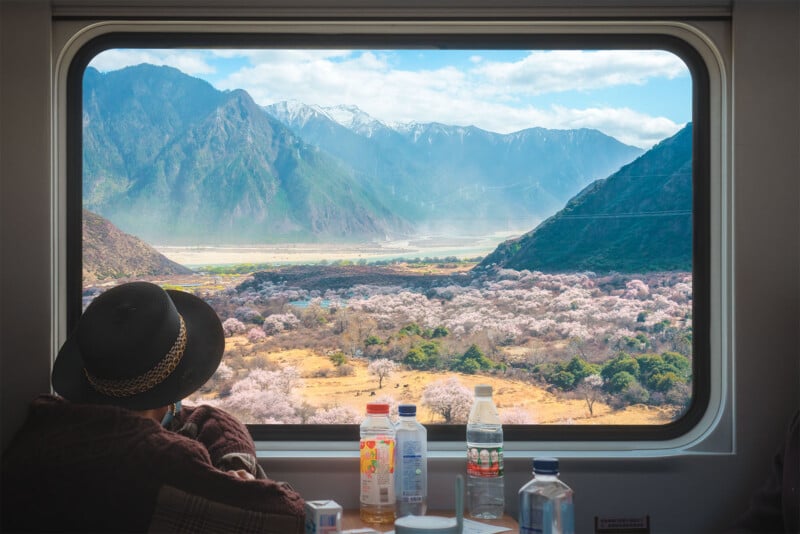
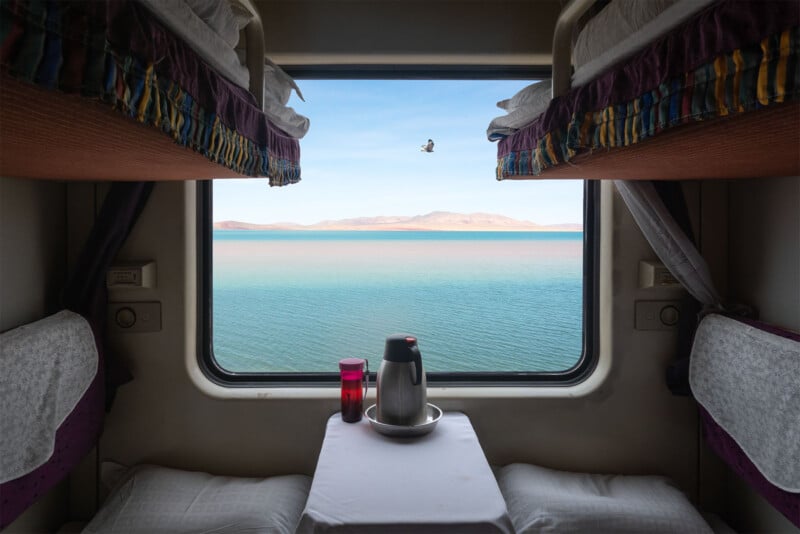
“These landscapes with a sense of humanity send me on a trip across various locations. The color pallet is soft and refined, and intensely balanced,” remarks Anne Farrar, Assistant Managing Editor of Photography at National Geographic and Grand Jury member.
Architecture
Finnish photographer Tiina Itkonen’s winning series, “Home,” turns the lens toward Inuit hunters, their families, and their remote wooden houses in Greenland.
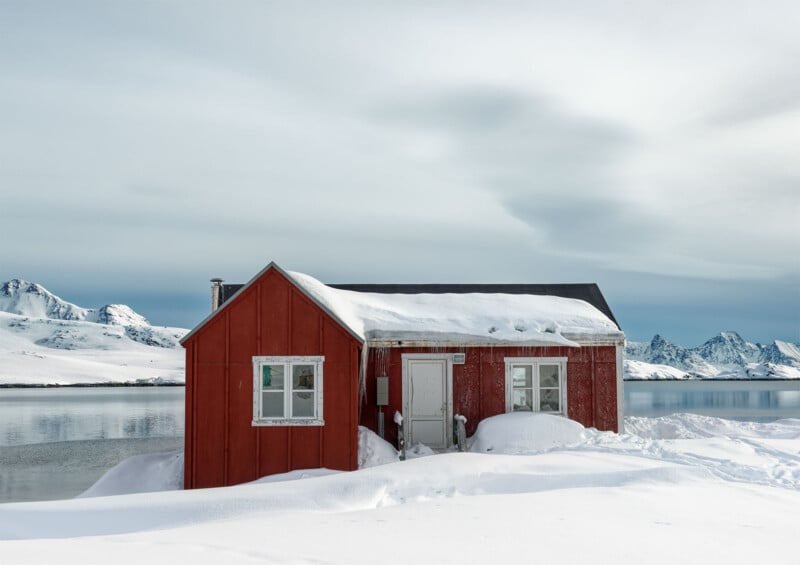
“What I love about this series is its freedom to let the building live in a space. There’s a softness to the pallet which reflects the simple architecture on a quiet landscape,” says Farrar.
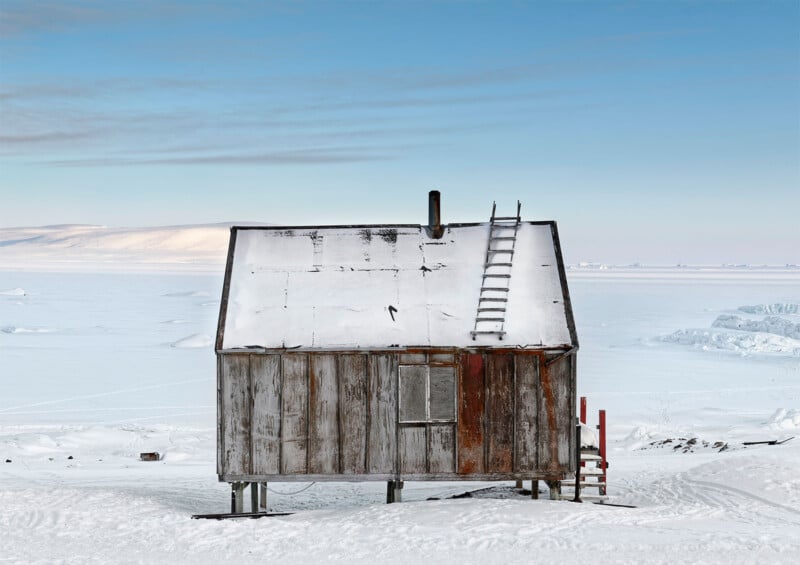
Since 1995, Itkonen has regularly visited Greenland to photograph the Arctic landscape and its inhabitants. Starting in 2017, she began documenting the traditional lives of the country’s Indigenous population, particularly how their way of life faces an existential threat from climate change.
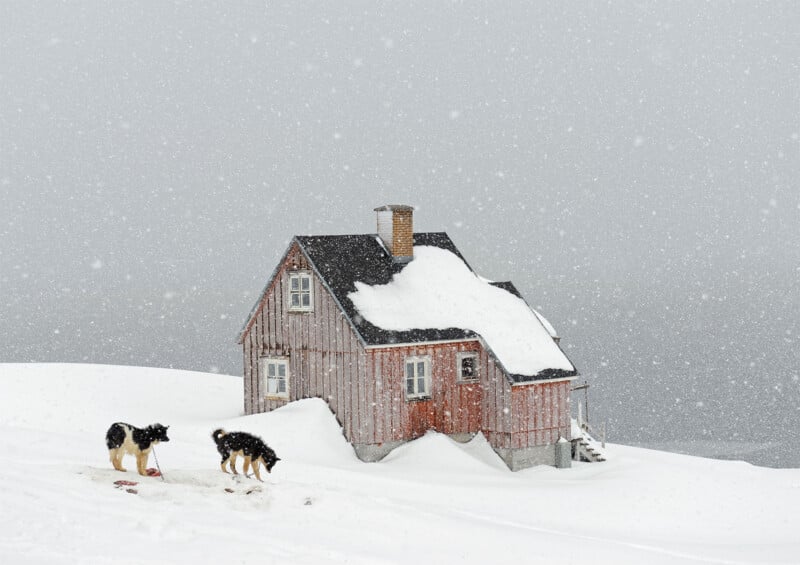
Portrait
“Bicycle Street Sellers of Jakarta” documents Indonesia’s cycling culture during the COVID-19 pandemic. Indonesian photographer Panji Indra Permana initially focused on lifestyle portraits, but the series transformed into one that looked at people who rely on bicycles as part of their lives and jobs.
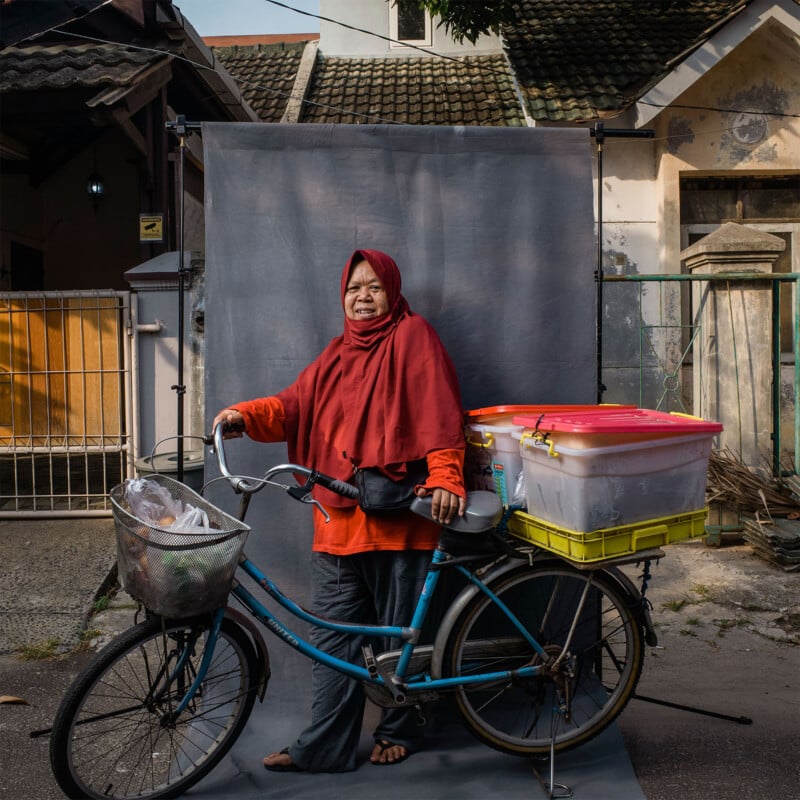
Although bicycles are viewed as an environmentally friendly mode of transportation in many countries, in Indonesia, they have long been a symbol of privilege. Through his series, Permana hopes to promote a healthy lifestyle that is better for the environment.
The series’ style is also quite interesting, thanks to Permana’s use of artificial lighting and a backdrop in the real world.

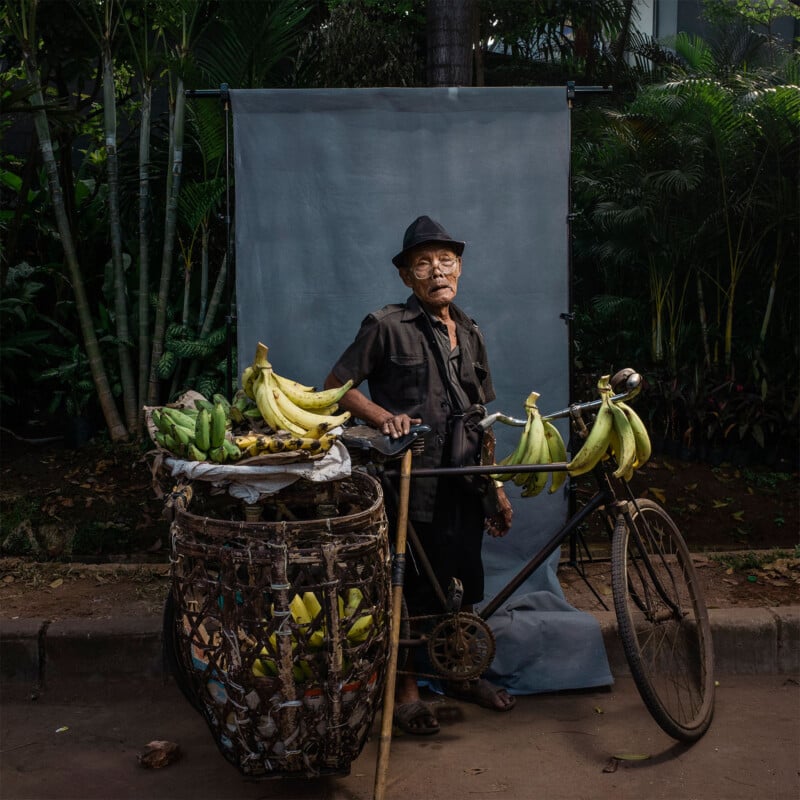
“By using a backdrop and flash, the photographer plays on the historical aspects of studio photography, bringing out elements reminiscent of historical paintings,” says Stefan Jensen.
And yes, Permana travels around with all his gear on a bicycle, which sometimes must be quite challenging.
Art
Belgian photographer Jan Pypers’ series” Diorama” also examines humans’ connection with nature, although in a different way than the photographers above. Pypers blends a diorama-like approach to create a surreal set of photographs that simultaneously seem carefully constructed yet serendipitous.
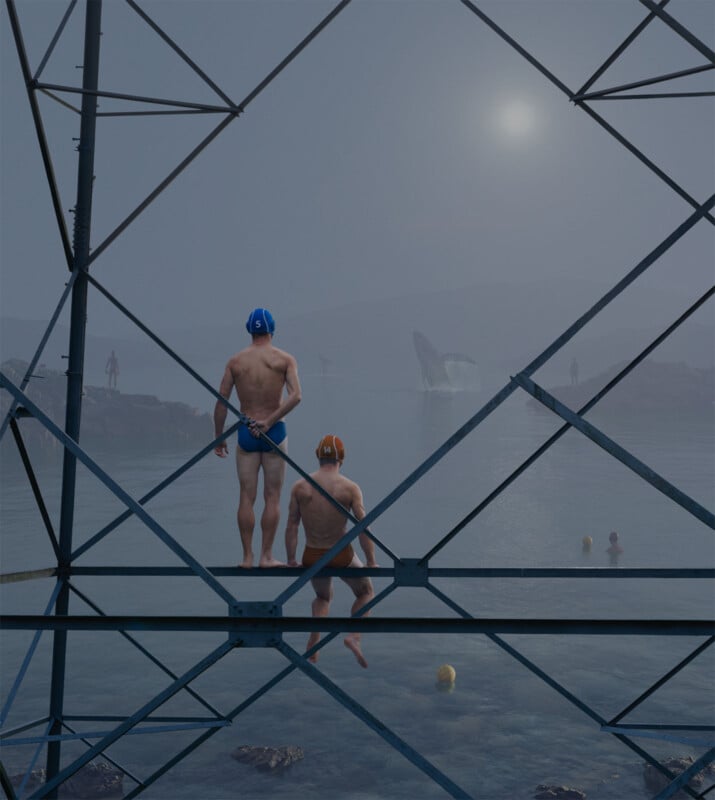
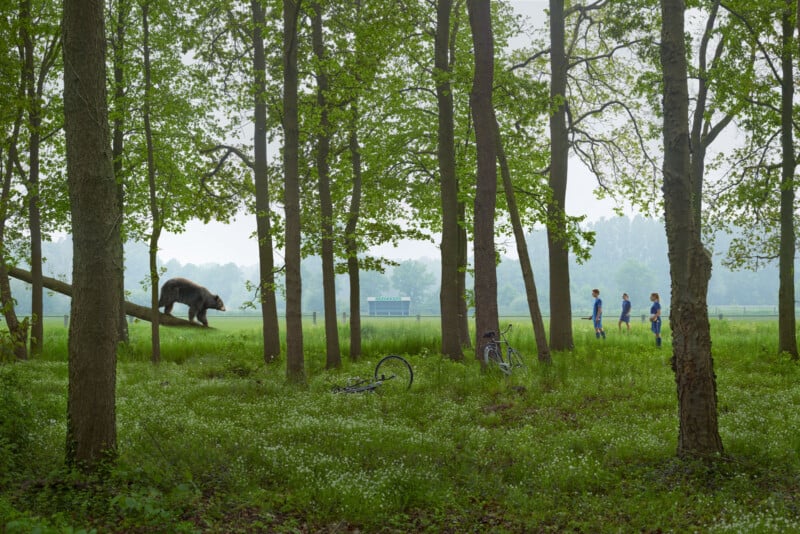
“The photographer skillfully balances what looks like a documentary scene with added elements that make us question their reality,” Jensen explains.
“The series explores our lost bond with nature, inspired by traditional dioramas and modern digital representations. It urges reconnection and respect with nature,” the photographer says. “I used Photoshop to merge several photos. Contrary to what many think, I do not use 3D or artificial intelligence, but old film techniques such as scale models and forced perspective.”
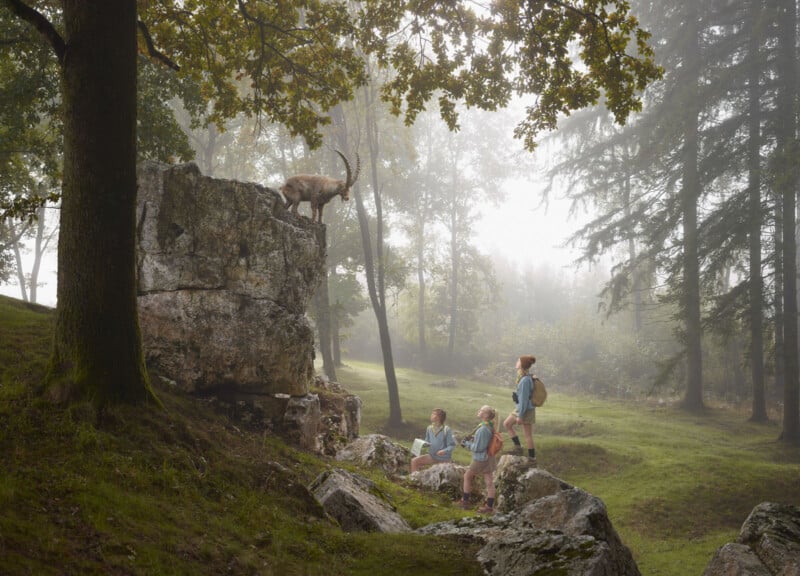
Street
Transportation is a consistent theme throughout the Hasselblad Masters 2023 competition. British photographer Tom Pitts took top honors in the Street category with his series, “The Commute,” which shows people at bus stops and in transit.
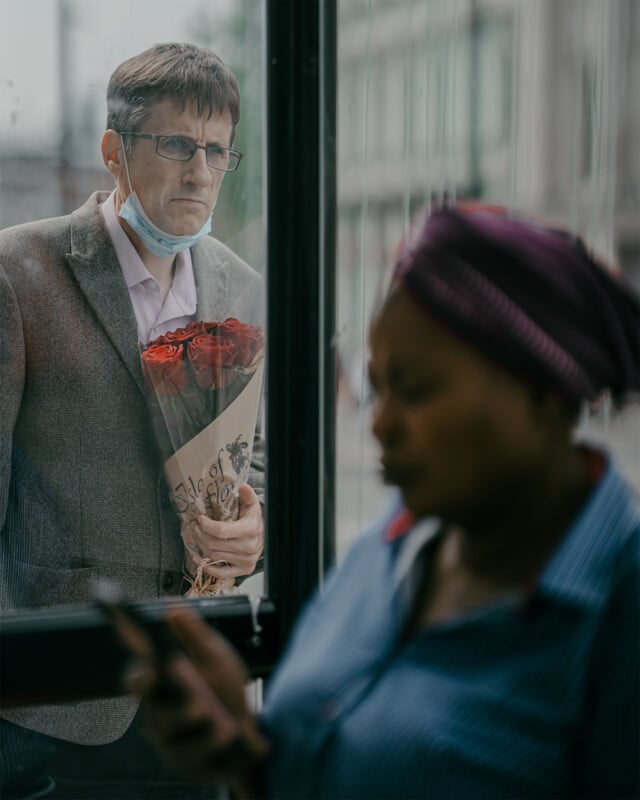
“I wanted to capture and share the stories and moments that take place every day during people’s commutes and the underlying beauty that passes us by,” Pitts says.
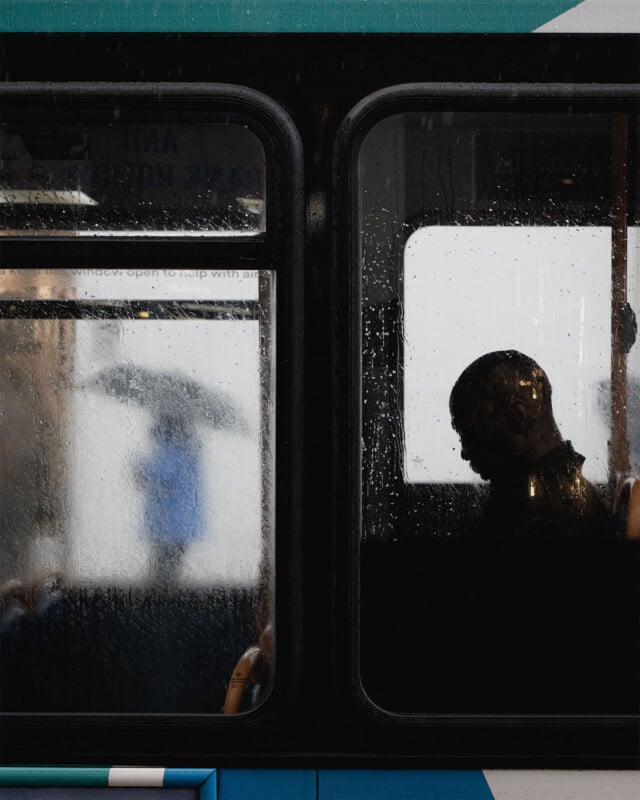
The photographer captured the images in his hometown of Cheltenham and London in 2023.
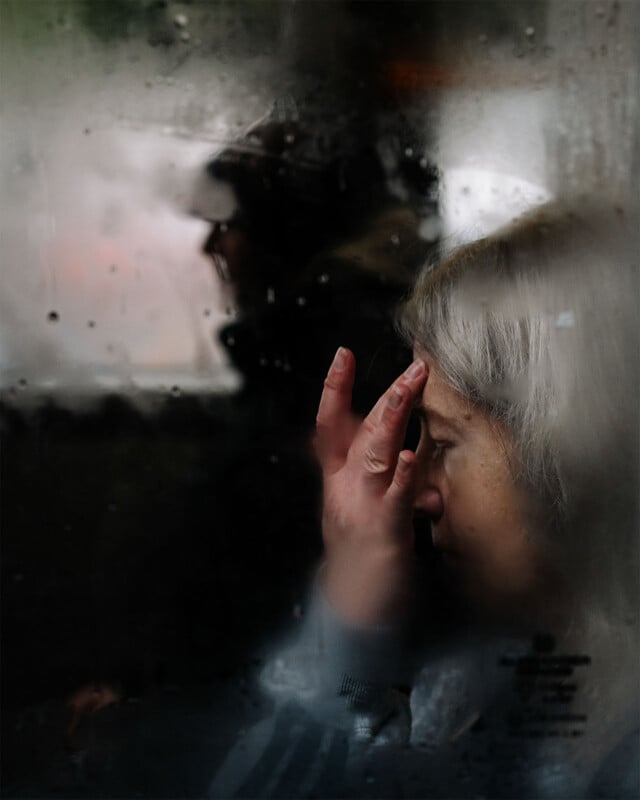
“The artist has captured moments that create a poignancy and narrative, essential to successful Street Photography,” says Andy Saunders, Senior Vice President at Getty Images and Grand Jury member.
Project // 21
“Let’s marvel at these tiny faces and remember to respect all life forms, no matter how small. Insects are vital to our ecosystem, pollinating plants and maintaining balance in nature. You don’t have to travel far to witness nature’s wonders — just step outside and look closely,” says Dutch photographer Efraïm Baaijens of his award-winning series, “Tiny Titans.”
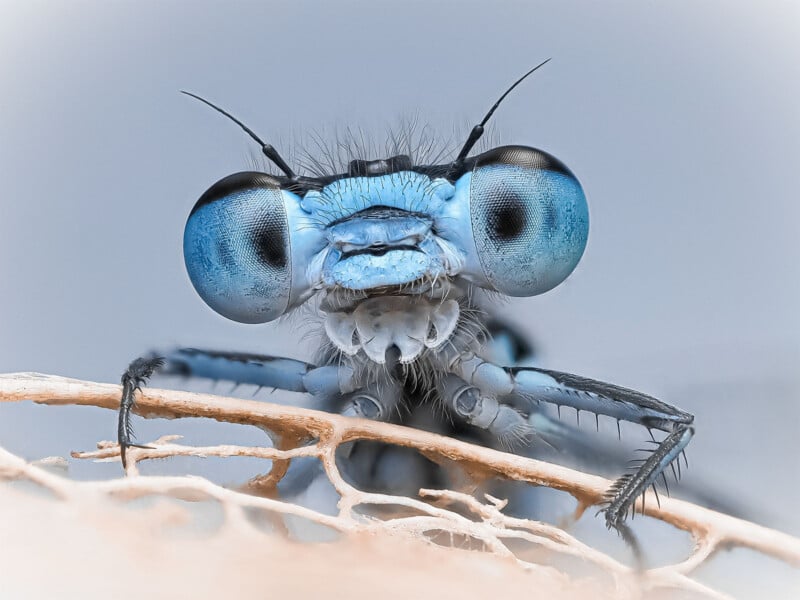
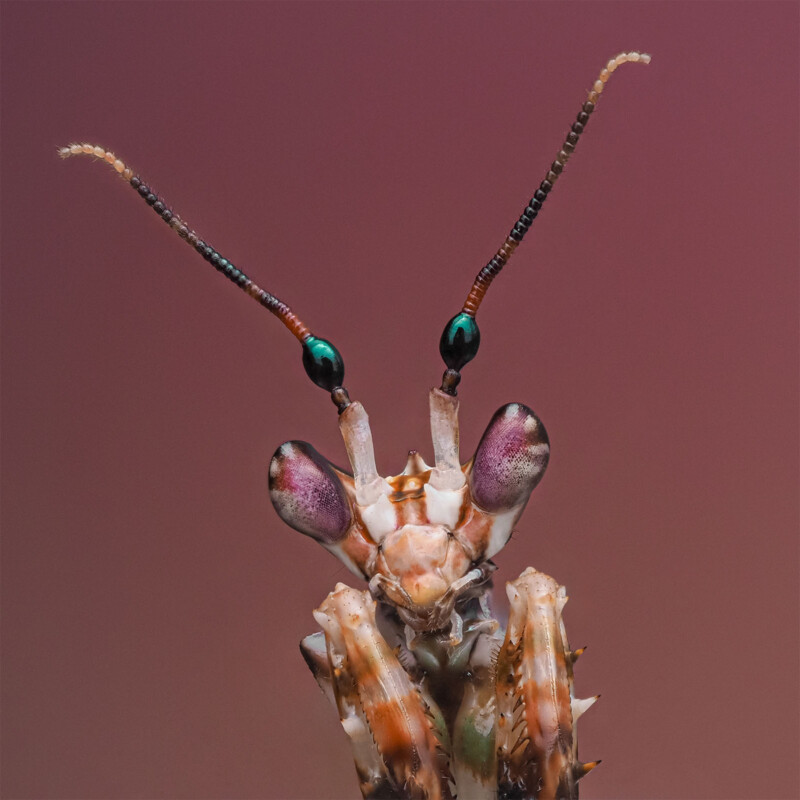
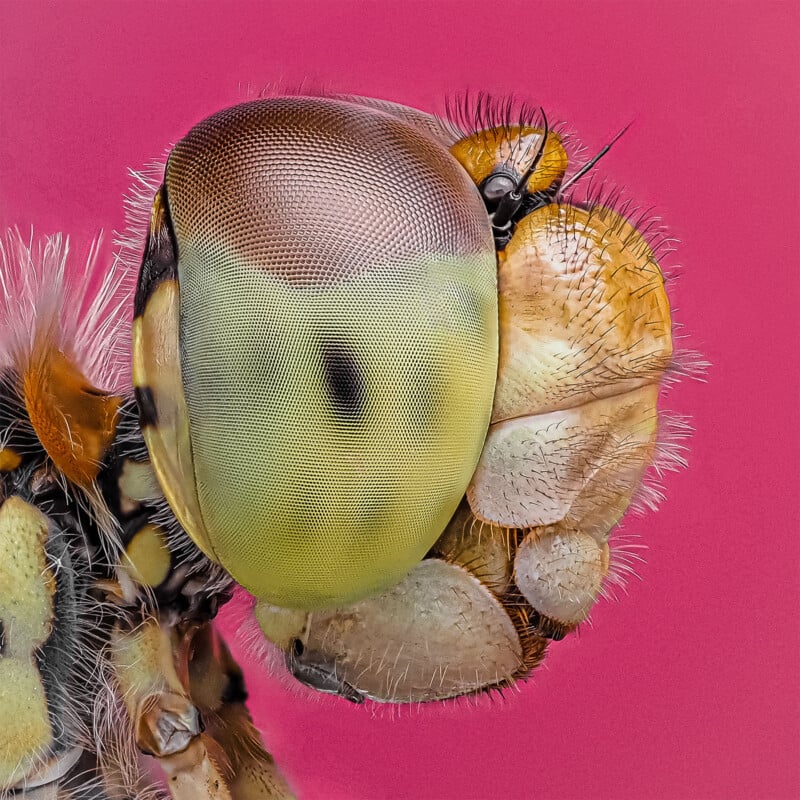
“Beautifully executed,” comments Saunders. “We’re drawn into believing these insects have character and what they might be ‘thinking.'”
More About Hasselblad Masters
The Hasselblad Masters Competition was established in 2001 and has become one of the world’s most prestigious photography contests.
Image credits: All images courtesy of the 2023 Hasselblad Masters Competition. Each photographer is credited in the photo captions.